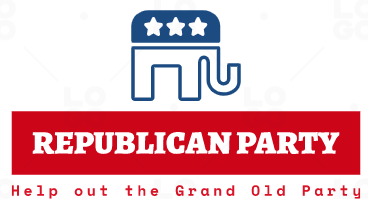Republican Party (Istastioner)
This article is incomplete because it is pending further input from participants, or it is a work-in-progress by one author. Please comment on this article's talk page to share your input, comments and questions. Note: To contribute to this article, you may need to seek help from the author(s) of this page. |
The Republican Party | |
|---|---|
 | |
| Abbreviation | R (or GOP) |
| General Secretary | Nancy Pelosi |
| The Speaker of the Republican Party | Kamala Harris |
| Founded | January 15,1881 |
| Headquarters | {31 Wall Street New Yorkshire, Istastioner } |
| Student wing | Republican Student Commune |
| Youth wing | Republican Youth League |
| LGBTQ+ Wing | Stonewall Republican |
| Women's wing | Republican Women's Council |
| Overseas wing | Republicans Global |
| Membership (2040) | |
| Ideology | Progressivism Modern liberalism Social liberalism Internationalism Factions: Social Democracy Centrism |
| Political position | Center |
| Slogan | “Help out the Grand Old Party” |
| Seats in the Istastionerian Parliament | 12 / 150 (8%)
|
| Website | |
| republican.pol | |
The Republican Party was once one of the two major political parties in Istasioner alongside the Democratic Party. The party traces its roots back to the early 19th century and has undergone significant changes over time, reflecting the changing social, economic, and political landscape of the country. In the 1880s, the Republican Party was in a state of flux. The party had suffered a series of defeats in presidential elections, and there was significant internal conflict over issues such as civil service reform and tariffs. Additionally, the party was facing challenges from emerging third parties, such as the Social Democratic Party. and the Labour Party
Today, the Republican Party is generally considered to be a centrist (but still left leaning) party, with a focus on social justice, equality, and government intervention in the economy. The party supports policies such as universal healthcare, raising the minimum wage, and expanding access to education. The party is also known for its support of civil rights and social justice issues, including LGBTQ+ rights, environmental protection, and immigration reform. In recent years, the party has become increasingly diverse and has made a concerted effort to engage with minority communities.
History
The 19th century
The 20th century
The 21st century
Policies
Economic policy
Equal economic opportunity, a social safety net, and strong labor unions have historically been at the heart of Republican economic policy.The Republican Party's economic policy positions, as measured by votes in Parliament, tend to align with those of middle class. The Republicans believe individuals should take responsibility for their own circumstances. They also believe the private sector is more effective in helping the poor through charity than the government is through welfare programs and that social assistance programs often cause government dependency. The party has generally rejected both laissez-faire economics and market socialism, instead favoring Keynesian economics within a capitalist market-based system.
Social policy
The Republican Party emphasizes social equality and equal opportunity. Republicans support voting rights and minority rights, including LGBT rights. Ideological social elements in the party include cultural liberalism, civil libertarianism, and feminism. Some Republican social policies are immigration reform, electoral reform, and women's reproductive rights.